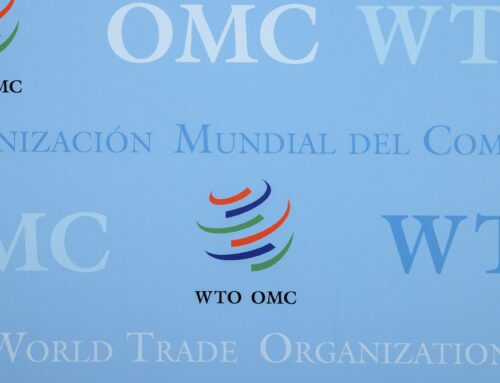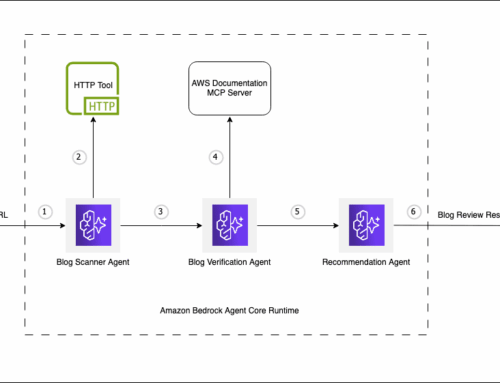Hemp hangup: Why Illinois leaders have failed to regulate delta-8
April 6, 2025
A dangerous new class of illicit drugs being marketed to kids — or a lifeline for small business owners and minority entrepreneurs who have been boxed out of Illinois’ legal marijuana industry?
It’s a matter of perspective when it comes to delta-8 and other hemp-derived THC products, which have divided state lawmakers and business leaders since a loophole in federal law launched sales of gummies, vapes and other intoxicants that affect people like weed but technically aren’t.
Over the past few years, the Illinois General Assembly has tried and failed repeatedly to pass legislation regulating this legal gray area, which Gov. JB Pritzker has branded a public health threat to children.
Hemp industry advocates have called for regulations including age limits and safety standards to allow them to stay in business.
But the influential cannabis lobby argues their hemp competitors should be held to the same lengthy, expensive licensing standards that weed dispensaries face.
Lawmakers are back at the table this spring trying to hash out a compromise. Here’s what they’re grappling with in the long-running delta-8 debate.
What is delta-8?
It’s a form of tetrahydrocannabinol, or THC, that’s extracted from hemp and, when chemically concentrated, can give users a high almost identical to marijuana, which comes from a closely related plant and has a similar psychoactive component: delta-9 THC.
Delta-8 products can be consumed in the same ways as marijuana: vapes, edibles, beverages, tinctures, oils, lotions or even buds sprayed with concentrate.
They’ve soared in popularity since companies began exploiting a massive loophole in the 2018 Agricultural Improvement Act, which removed hemp and other derivatives of cannabis with less than 0.3% THC from the federal definition of marijuana.
That led to a new crop of businesses extracting and concentrating hemp THC for products that often are just as potent as weed but don’t face regulations like those imposed on Illinois’ legal marijuana dispensaries.
Myriad other nonintoxicating products are derived from hemp, like CBD oils, lotions and snacks. Hemp entrepreneurs worry a ban would criminalize those products, too.

Tyler Pasciak LaRiviere / Sun-Times
Is delta-8 safe?
Experts don’t have a full picture because products are unregulated.
The federal Food and Drug Administration has warned that “children can suffer serious health consequences” from ingesting delta-8 products, which “have not been evaluated or approved by the FDA for safe use in any context.”
National poison control centers were called about 2,362 cases involving delta-8 products over a 14-month period from 2021-22, with 41% of those cases involving kids, according to the FDA.
Delta-8 products sometimes are packaged to resemble popular candies recognizable to kids who have easy access to them at convenience stores and smoke shops.
“This regulatory gray area has created a loophole that put Illinois consumers of all ages but particularly children in danger while an underground market flourished — the exact opposite of what Illinois has done by regulating our cannabis industry,” Pritzker said while calling for a ban last fall.

State of Illinois livestream
But it’s still legal?
Possession is legal statewide, and sales are rampant at gas stations and other shops across Illinois, but some local governments are cracking down.
Southwest Side Alds. Marty Quinn (13th) and Silvana Tabares (23rd) have passed bans in their wards near Midway Airport, and an emerging patchwork of regulations has stretched to several suburbs that have blocked sales, too, including Antioch, Buffalo Grove, Des Plaines, Elgin, Elk Grove Village and Wheeling.
“Local governments can move more quickly,” said Kyle Kordell, management services director for the village of Lake Zurich, where a delta-8 ban went into effect Jan. 1. “We didn’t want to wait until something bad happened.”
Rolling Meadows Mayor Lara Sanoica said her city’s ban, implemented in February, was an important step but not as effective as a statewide regulatory framework could be.
“We’re bordered by multiple municipalities where these products are readily available,” Sanoica said. “It’s a matter of making sure the entire region is cooperating.”
South Side Ald. William Hall (6th) has pitched a plan to tax and regulate products in Chicago, but his proposal hasn’t moved in the City Council.
What are the regulation proposals?
Pritzker championed a bill that would have limited sales of most hemp-derived products to licensed cannabis dispensaries, effectively banning most delta-8 sales because those licenses are costly and difficult to obtain.
Hemp industry leaders said that would wipe out thousands of jobs, a claim Pritzker disputes.
“I understand that there are a lot of stores that are selling these products that would not be able to sell these products,” the governor said in December. “But typically they’re not stores that are dedicated to this product… They wouldn’t go out of business not selling this one.”
The bill overwhelmingly passed the Illinois Senate but was never called to the floor by Illinois House Speaker Emanuel “Chris” Welch, so it died in January.

Ashlee Rezin / Sun-Times file
State Rep. La Shawn Ford, D-Chicago, has introduced legislation that would impose age limits, testing standards and packaging requirements while issuing $500 licenses to sell products taxed at 10%.
Cannabis lobbyists say that’s an unfairly low barrier to entry compared to the rigorous standards in place to open weed dispensaries. Those licenses cost upwards of $30,000 a year.
Ford argues that they can coexist the same way spirits are regulated in the alcohol industry compared to beer and wine, with delta-8 potency limited relative to cannabis.
“Prohibition can’t work,” Ford said. “We’ve learned that. You can’t eliminate these products. They’re here.”
State Sen. Bill Cunningham, D-Chicago, also has introduced a bill that would regulate hemp THC beverage distribution without addressing the broader hemp product industry.
Why so hard to figure out?
Big money is on the line in a debate that has highlighted a rift among Democrats across Illinois.
Hemp leaders say the $800 million industry has created a vital economic avenue for people who weren’t able to snag coveted social-equity pot dispensary licenses in the state’s troubled licensing rollout — and they say the cannabis industry is trying to wipe out competition.
Cannabis leaders say unregulated delta-8 sales are cutting into the legal weed industry, which generated $490 million in tax revenue last year.
Both sides have directed major campaign contributions to politicians wrangling over the issue.
Pritzker’s ban seemed destined for approval until a heated Democratic caucus meeting prompted Welch not to call the measure for a vote. Mayor Brandon Johnson also stepped in at the 11th hour, urging lawmakers not to approve a ban.
The governor called it an example of “the power of special interests and the money that they spread around to thwart the health and safety of the public.”
What have other states done?
At least 13 other states have banned delta-8 sales, including New York, Colorado and Iowa, according to the Marijuana Policy Project, a weed legalization advocacy group. Illinois is among four states that have mulled regulations in recent years.
Will this be settled soon?
Hemp talks have been on Springfield’s back burner as lawmakers sort through a difficult state budget season. Sources on both sides of the debate were skeptical a bill could advance by the end of the spring legislative session in late May — but nobody is ruling out a deal.
“It doesn’t take long to do anything if you can get agreement,” Ford said. “Everybody wants to get this figured out.”
Search
RECENT PRESS RELEASES
Related Post


